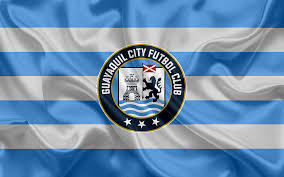Guayaquil City FC is fast becoming a prominent name in the world of Ecuadorian football. With a commitment to developing local talent, fostering community support, and enhancing the overall quality of play, this team is on an upward trajectory that captures the passion and spirit of the Ecuadorian people. As we delve into the intricacies of this football club, we will explore their history, growth, challenges, and contributions to both the local and national football scene.
The Historical Roots of Guayaquil City FC
Understanding the origins of Guayaquil City FC provides insightful context into its character and ambition. Founded relatively recently, the club represents a new vision for football in Ecuador, diverging from traditional giants to carve out its unique identity Link F168.
Foundation and Early Years
Guayaquil City FC was established in 2014, marking a significant moment in the landscape of Ecuadorian football. Born from the desire to create a competitive edge in both domestic and international arenas, the club adopted an inclusive approach focusing on building a robust fan base and community connection.
From its inception, the club aimed to foster local talent by prioritizing youth development programs. These initiatives not only served as a pipeline for future stars but also cultivated a strong sense of belonging among fans and players alike. This grassroots philosophy has been instrumental in shaping the club’s culture and ethos.
In those early years, Guayaquil City FC faced numerous challenges common to newly established clubs. Securing financial stability while gaining recognition in a league filled with historical powerhouses such as Barcelona SC and Emelec was no small feat. However, the determination displayed by management and players laid the groundwork for what would become a formidable contender in Ecuadorian football.
Growth and Expansion in the League
As the club navigated its formative years, Guayaquil City FC slowly but surely built momentum within the domestic league. Their inaugural season in the top flight showcased promise, even amidst fierce competition. The ambition to rise through the ranks became evident as they began to garner attention for their dynamic playing style and strategic gameplay.
The club’s performance over several seasons illustrated its commitment to improvement and adaptation. Emphasizing technical skills and tactical awareness, the coaching staff worked diligently to refine player capabilities. Young talents emerged as key figures in the squad, highlighting the importance of the youth academy in supplementing the first team.
Moreover, Guayaquil City FC made strides beyond the pitch as they engaged with fans and the local community. Initiatives that encouraged supporter involvement and promoted football at grassroots level proved crucial in establishing a loyal following. This bond between the club and its supporters remains a cornerstone of their identity, driving the team forward as they seek success.
Identity and Branding
A defining aspect of Guayaquil City FC is its embrace of local culture and identity. The club’s branding reflects an authentic connection to the city of Guayaquil, celebrating its rich heritage while aspiring to be a beacon of hope for local communities. Through bold colors, innovative chants, and a spirited mascot, the club has created an environment where fans can rally behind their team with pride.
Guayaquil City FC stands apart from other clubs in the region by promoting not just the sport but also the cultural significance of football in Ecuador. Their marketing campaigns resonate deeply with local supporters, creating a narrative that transcends the football field. By embracing social issues and advocating for community causes, the club has carved out a niche that appeals to a diverse audience.
Building a brand that resonates with the local populace requires a keen understanding of the societal context. Guayaquil City FC has successfully managed to bridge the gap between football and community engagement, reinforcing the idea that the club is not just about winning but about fostering unity and resilience among fans.
